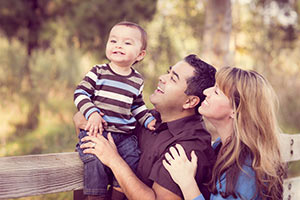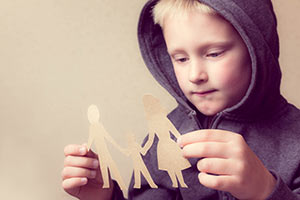ADOPTION IN
Kansas

Kansas adoption is one option for expectant parents facing an unplanned pregnancy or hopeful adoptive parents looking to build a forever family. You can navigate the adoption process in Kansas with the help of the Adoption.com Team. Whether you’re looking for pregnancy support or you’re trying to get the word out about your interest in adopting, we can help you get started.
Adoption Near Me
Looking for more resources in your area? Check out the Adoption Directory for a listing of adoption professionals in your state.

Considering Placing Your Baby or Child for Adoption in Kansas? You can learn more here or call an adoption counselor 1-800-236-7898.
Domestic Infant Adoptions can be completed through Kansas adoption agencies and attorneys. They can help one adopt a child domestically. Click here to connect with an adoption professional.
International Adoptions must be completed through adoption agencies and attorneys. They can help one adopt a child internationally. Click here to learn more about international adoption.
Foster Care Adoptions in Kansas can be completed through the Department of Children and Families (877-530-5275).
Gallery of children waiting to be adopted.
Join the Kansas adoption group in our community!
I’m considering placing my baby or child for adoption.
Pregnant and have questions? We can help answer your questions by telling us what works best for you.
Are you pregnant and considering adoption? Do you need help getting started?
Click here and help us understand what your needs are and the preferences you have. We can help you get started.
Adoption in Kansas
By: Rebekah Yahoves
The home of Pizza Hut, Graham crackers, and helium is a beautiful place to live. And, with its lush prairies and rambling parks, Kansas is also a great place to raise a family. If you have ever thought about adoption in Kansas, now is the perfect time to start.
Adoption in Kansas through Foster Care
Adoption through foster care is fairly inexpensive. It is usually less than $3,600 in legal and home study fees. Also, the state of Kansas will reimburse adopting families up to $2,000 per child with special needs, which includes children that are over 12 or part of a larger sibling group.
There are currently over 500 children who are already available for adoption in the Kansas foster care system. It includes children of all ages, races, ethnicities, and socio-economic backgrounds. The majority of those children already free for adoption are school-aged (around 8 years old,) part of a sibling group of three or more, or have special developmental needs.
Parents wishing to adopt a younger child or infant through the foster care system will most likely not be able to find one who is already available for adoption. You may ask to foster a younger child who is more likely to become available for adoption in the future. The state of Kansas has a dual-licensing program, which will enable you to become certified as a foster parent and adoptive parent at the same time.
Your caseworker may be able to identify and match you with a child who has a higher chance of becoming available for adoption. However, there is no guarantee that the child or children will become adoptable. If this is too great a risk for you to take, you may want to consider adopting through a domestic agency or private lawyer.
Children in foster care or adopted through foster care in Kansas receive health insurance through a state or federal program. They may also be eligible for a monthly subsidy based upon their child’s needs, community resources, and support services. The amount and type of subsidy are negotiated between the adopting family and the Department for Children and Families. It is legally binding and continues until the child turns 18—or 21 in some cases.
Becoming a foster parent in Kansas is considered voluntary. There is, however, a stipend of $20 a day per child to help meet the child’s basic needs such as food, clothing, and childcare.
If you are a Kansas resident interested in adopting through foster care, you can begin by emailing customercare@adoptkskids.org for a list of adoption agencies that can help you prepare for adoption. If you are not interested in becoming a foster parent, make sure the adoption agency you choose works with adopt-only homes.
Your adoption agency’s application process will involve a TIPPS-MAPP training class, verification of employment, background checks, health checks, reference checks, and a review of your financial plan and budget.
There will be a home inspection that is nothing to worry about. Just make sure your house is very clean that day! The social worker will ask questions about your parenting style, life experiences, sense of family, expectations for your child, community support, and information about the age, gender, and needs of the type of child you would prefer to adopt.
After you are approved to become an adoptive parent, you can begin working with your agency’s social worker to find a matching child. If you would like to become licensed as a foster parent as well, your application will be submitted to the Kansas Department of Health and Human Environment (KDHE) for your foster license.
You can continue to search on the Adopt Kansas Kids website to find a child who is a good fit. If you take an interest in a child or children, you can have your caseworker send your home study to the child’s caseworker to see if it is a match.
If you are selected, you will be invited to participate in a Best Interest Staffing, which is a meeting of all the professionals involved with a child to officially select adoptive parents for the child. You will be able to meet with the child’s teachers, social workers, and counselors to get all the information you can about the child.
Your adoption will be legalized in less than 12 months. During this time, you will continue to receive services and visits from your caseworker.
If you are a non-Kansas resident who is interested in a child on the Adopt Kansas website, you should complete the adoption approval process in your home state first. Once approved, you should check to see if the child you are interested in is available for interstate adoption. This may be indicated on the website. Adoption.com has a wonderful photo listing page where you can review the profiles of children who live in Kansas and those who live outside the state as well.
If you are not interested in any particular child, you can have your social worker register you on the Adopt Kansas website. If a child’s caseworker thinks that you will be a good fit for a particular child or children, you will be contacted.
If a match is made, you will be asked to participate in a Best Interest Staffing for the child. You will be able to review all of the child’s information as presented by those closest to them.
Finally, an Interstate Compact for Placement of Children (ICPC) will begin, in which you will decide on the time that the child will come live with you. Your adoption will be legalized up to 12 months later.
Adoption in Kansas through a Private Agency
Adoption in Kansas is different through a private agency. You can adopt a baby or toddler who is already available for adoption, so the risk involved in fostering a child is eliminated.
Many private agencies work with Kansas families, including Adoption & Beyond, Zoe’s House Adoption Agency, and ANA Adoptions. You will be asked to complete a home study, which involves a background check, evaluation of your physical and mental health, home inspection, and financial review. Many private agencies now also require families to create a website, online profile, or picture book highlighting their family’s home, interests, and pets. These are designed to help birth mothers choose the best fit for their infant.
Private agency adoption in Kansas can cost between $20,000 and $35,000. Many families offset this cost through the federal adoption tax credit of $13,810 per child. This is a way that you can be reimbursed for adoption-related expenses in the form of income taxes that you will not have to pay after the adoption is finalized. The expenses that qualify include home study fees, legal fees, birth mother expenses, and travel. The state of Kansas also offers a state-level adoption tax credit of up to 75% of the federal adoption tax credit.
Many adoptive parents also receive employer assistance for adoption. You can apply for adoption grants as well.
Adoption in Kansas through a Lawyer
Adopting privately through a lawyer is slightly less expensive than using an agency. It usually costs somewhere between $15,000 and $25,000 including home study fees, lawyer fees, and birth mother expenses. The federal and state adoption tax credits also apply toward private lawyer adoption.
When using a lawyer, the adoptive family is a bit more involved in the process of locating birth mothers than they are with an adoption agency. They may have to receive phone calls from prospective birth mothers or place ads in local newspapers.
Infants can be adopted through a lawyer, and the level of “openness” is negotiated with the birth mother beforehand. In most cases, there is an exchange of text messages, emails, or letters on birthdays or other occasions to update the birth mother on the child’s progress.
The Academy of Adoption and Assisted Reproductive Attorneys is a good place to start looking for a reputable adoption lawyer. These professionals have distinguished themselves by completing at least 50 adoptions each, including 10 interstate adoptions. There are currently 9 AARA attorneys in the state of Kansas.
If you are ready to begin pursuing adoption in Kansas, get ready for an exciting adventure. Whether you choose foster care adoption, agency adoption, or private lawyer adoption, you can begin to prepare to make a home for a child whose life will be forever changed by your love.
Kansas Adoption Guide
The information contained on this website is for educational purposes only and is not intended to be a substitute for professional legal advice. Always seek the advice of a licensed and qualified professional. While the content of this website is frequently updated, information changes rapidly and therefore, some information may be out of date, and/or contain inaccuracies, omissions, or typographical errors.
Can I Adopt in Kansas?
Applicants can be single, married, or divorced. You can own or rent a home. You don’t have to be wealthy to adopt. Instead, hopeful adoptive parents need a stable income to provide for a growing family. A 30 hour PS-MAPP training course is required in order to adopt or foster a child. Adoptive families will need to pass a home study letting caseworkers know you have been cleared to receive children into your home.
What Adoption Regulations Exist in Kansas?
Advertising: No person or organization other than a licensed child-placing agency shall advertise that they will adopt or place a child in an adoptive home. If another person does create an adoption advertisement, they are required to state whether or not they hold a current license, and where the license was issued from. § 59-2123(a)(1), (b)-(c)
Relinquishment: The birth mother cannot consent to the adoption until at least 12 hours after the birth of her child. Consent given before 12 hours after birth is voidable in court before a final adoption decree. Consent is final when executed unless, before the final adoption decree, the consenting party proves in court that consent came under fraud or duress. § 59-2114; 59-2116
Birth parent expenses: The following expenses may be made on behalf of the birth mother: actual medical expenses of the mother, medical expenses of the child, reasonable living expenses during pregnancy or as a result of the pregnancy. Expenses that are clearly excessive are banned in Kansas. § 59-2121(a); 59-2121(c)
Post-adoption contact agreements: Contact agreements are not legally enforceable in Kansas.
Birth father rights: Unmarried fathers wishing to receive notice of adoption proceedings may file an acknowledgement of paternity. When signed, the acknowledgement forms a permanent father child relationship that can only be broken in court. § 38-1138
Finalization: Out of 695 adoptions completed in 2014, the average time between termination of parental rights and adoption finalization was 16.1 months. (acf.hhs.gov)
Is Adoption Assistance Available in Kansas?
Can I adopt a Child from another country?
It is always possible to adopt a child from another country, even if you live in the United States. Children under 18 adopted from a Hague Convention country entering the U.S. with an IH-3 visa may automatically receive U.S. citizenship.
Children adopted from a non convention country must qualify as orphans before receiving U.S. citizenship. When U.S. citizens finalize an adoption abroad, they must apply to the USCIS for an IR-3 visa for the child. An IR-3 visa classifies the child as an immigrant and provides the child with citizenship upon arrival in the States.
Kansas gives full effect and recognition to adoptions completed abroad so long as the foreign adoption is filed with a Kansas state court.
State Contacts
Gallery of children waiting to be adopted:
https://adoption.com/photolisting?page=1&search_type=state&range=19
State subsidy contact:
Karen Wahlmeier
Department for Children and Family Services (DCF)
2601 S Oliver
Wichita KS, 67210
316-337-6355
Summary
Adoptions in Kansas can be completed through the Department of Children and Families.
Applicants can be single, married, or divorced. You can own or rent. Parents need a stable income. A 30 hour PS-MAPP training course is required. Applicants must pass a home study.
No person or organization other than a licensed child-placing agency shall advertise that they will adopt or place a child in an adoptive home.
Birth mothers must wait until at least 12 hours after birth before giving consent. Consent is final upon execution unless proved in court before the final adoption decree that consent came under fraud or duress.
The following expenses are permitted: medical expenses of the mother and child, and reasonable living expenses during pregnancy.
Contact agreements are not legally enforceable in Kansas. Unmarried fathers wishing to receive notice of adoption proceedings may file an acknowledgement of paternity.










